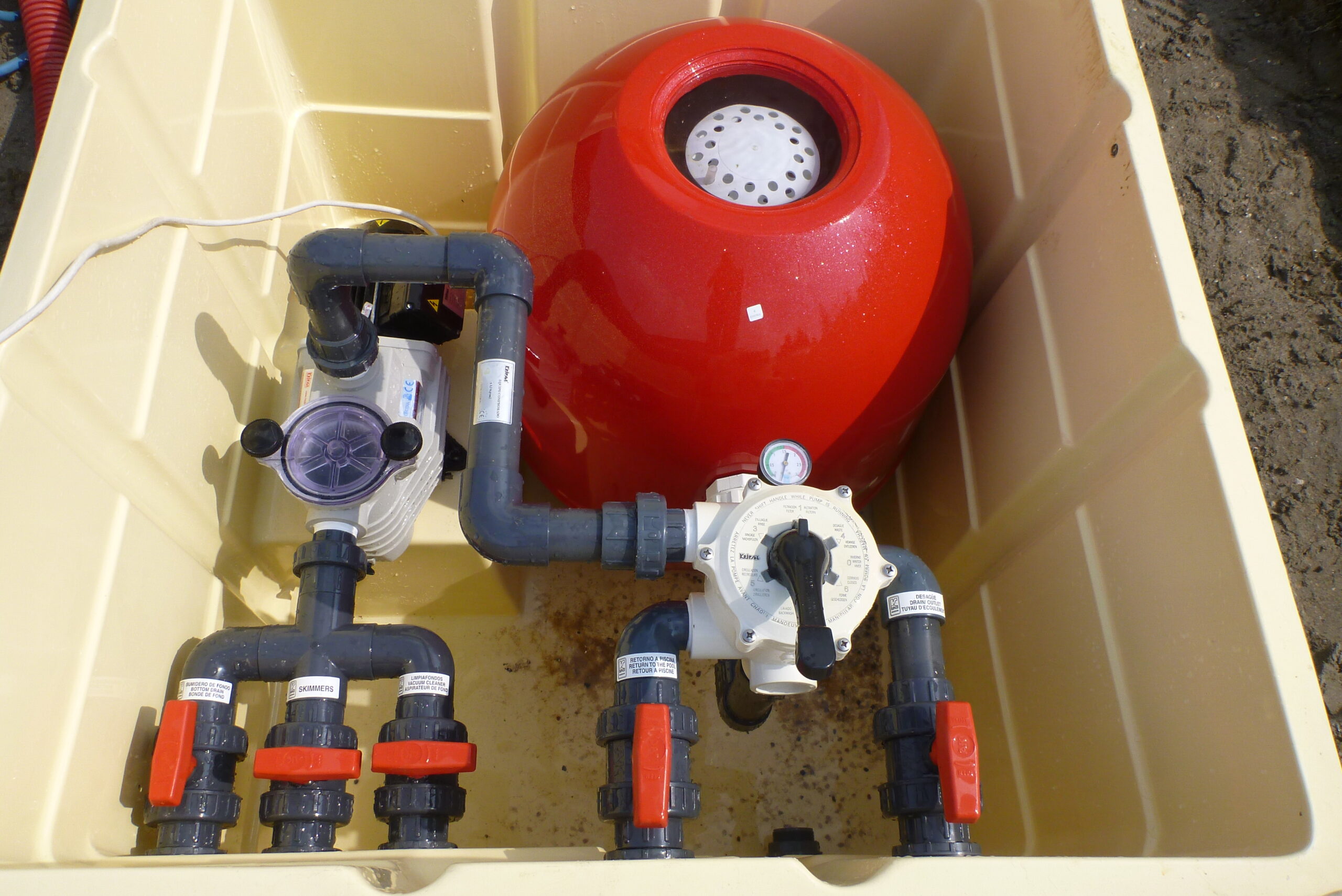Short Guide on Pool Filters: Exploring the Diverse Options for Crystal-Clear Water
A swimming pool is an oasis of relaxation and enjoyment, but behind the shimmer of crystal-clear water lies a crucial element that ensures your swimming experience remains clean and refreshing: the pool filter. Pool filters play an essential role in maintaining water quality by removing impurities and keeping the water pristine. Let’s delve deeper into the various types of filters, their qualities, and how they function.
Various Types of Pool Filters and Their Features
Polyester Filters:
Advantages: Robust, durable, efficient in trapping debris, require less maintenance.
Disadvantages: Higher initial costs compared to some other filter types.
Side Mount Filters:
Advantages: Larger sand bed for increased filtration surface, resulting in improved filtration efficiency.
Disadvantages: Slightly more complex installation and maintenance compared to top-mount filters.
PVC Filters:
Advantages: Lightweight, corrosion-resistant, cost-effective in purchase.
Disadvantages: Less durable than polyester filters, might require more frequent replacement.
PP Filters (Polypropylene):
Advantages: Chemical-resistant, suitable for aggressive water environments, longer lifespan.
Disadvantages: Might be pricier in purchase than PVC filters.
Cartridge Filters:
Advantages: Fine filtration, effective for small particles, easy to clean.
Disadvantages: Requires more frequent cleaning and maintenance, can clog up with heavy pollution.
Key Factors in Pool Filtration
Flow Rate:
The flow rate of a filter is crucial for effective filtration. Filters for private pools are often calculated at a flow rate of 50m³/h/m², but a slower flow of 30m³/h/m² can actually yield better results due to improved filtration time.
Sand Quality:
The quality of sand in a filter is crucial. Quality sand can last up to 10 years and must meet specific requirements, such as a grain size of 0.4-1.0mm and calibration for optimal performance.
How Pool Filters Work
Pool filters function by allowing water to pass through a filter medium, usually sand. As the water passes through the sand bed, debris is trapped and filtered, returning clean water to the pool.
Conclusion
Each type of pool filter has its characteristics and advantages, which can vary depending on the pool’s needs and environmental factors. Choosing the right filter type is crucial for effective filtration and long-term pool performance. Considering factors such as durability, maintenance requirements, and initial costs can help in selecting the most suitable filter type for a specific pool situation.
Understanding these different filters enables pool owners to make informed decisions when choosing the most suitable filter type that meets their specific needs and budget.
🎯 Share this informative guide to assist others in learning the different types of filters for a crystal-clear swimming experience! 🏊♂️🌍
For further details or inquiries, connect with ISB Manufacturing via email at Info@e-bd.group or call 5778 6080.

